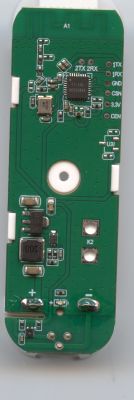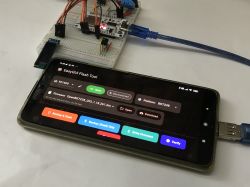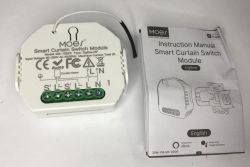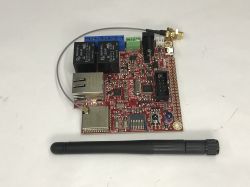Greetings!
I have an OHLUX GU24 Smart Bulb that I'm trying to configure with OBK. After tearing it down, I've found that it's running a CB2L.
I was able to successfully remove this from the bulb and connect it to my PC with my USB to Serial programmer. I was able to talk to the device using OpenBK Flasher where I pulled a copy of the firmware. After taking a backup, I was able to write the latest version of OpenBk to it.
With the other devices I've done, I was able to restart them and see the SSID when the device went into AP mode, but I'm not seeing the SSID on this device. I've tried multiple wifi devices to be sure, and no other device I have can find the AP network.
I'm still learning here, so I may be overlooking something obvious. It seems as though I can talk to it just fine -- read from it, write to it, etc, but it doesn't appear to be starting the AP mode. One thing that seemed odd to me was that the device didn't need CEN grounded for programming (or briefly grounded for to enter programming mode). As soon as the device was powered on, I was able to read and write. I'm wondering if it's possible this is "stuck" in programming mode?
I was wondering if anyone could help nudge me in the right direction as to what I should be looking at next. I feel like the device isn't booting up correctly, and it's automatically entering programming mode, but I'm not quite sure how to verify that or how to resolve it.
While I would love to make this work, I am open to replacing the CB2L. I'm not sure what I can drop in as a replacement, or where I can source them from.
I really do appreciate any help you have to offer. I'm rather new to working with technology at this level, but I will eventually get up to speed!
Thank you so much!
I have an OHLUX GU24 Smart Bulb that I'm trying to configure with OBK. After tearing it down, I've found that it's running a CB2L.
I was able to successfully remove this from the bulb and connect it to my PC with my USB to Serial programmer. I was able to talk to the device using OpenBK Flasher where I pulled a copy of the firmware. After taking a backup, I was able to write the latest version of OpenBk to it.
With the other devices I've done, I was able to restart them and see the SSID when the device went into AP mode, but I'm not seeing the SSID on this device. I've tried multiple wifi devices to be sure, and no other device I have can find the AP network.
I'm still learning here, so I may be overlooking something obvious. It seems as though I can talk to it just fine -- read from it, write to it, etc, but it doesn't appear to be starting the AP mode. One thing that seemed odd to me was that the device didn't need CEN grounded for programming (or briefly grounded for to enter programming mode). As soon as the device was powered on, I was able to read and write. I'm wondering if it's possible this is "stuck" in programming mode?
I was wondering if anyone could help nudge me in the right direction as to what I should be looking at next. I feel like the device isn't booting up correctly, and it's automatically entering programming mode, but I'm not quite sure how to verify that or how to resolve it.
While I would love to make this work, I am open to replacing the CB2L. I'm not sure what I can drop in as a replacement, or where I can source them from.
I really do appreciate any help you have to offer. I'm rather new to working with technology at this level, but I will eventually get up to speed!
Thank you so much!






